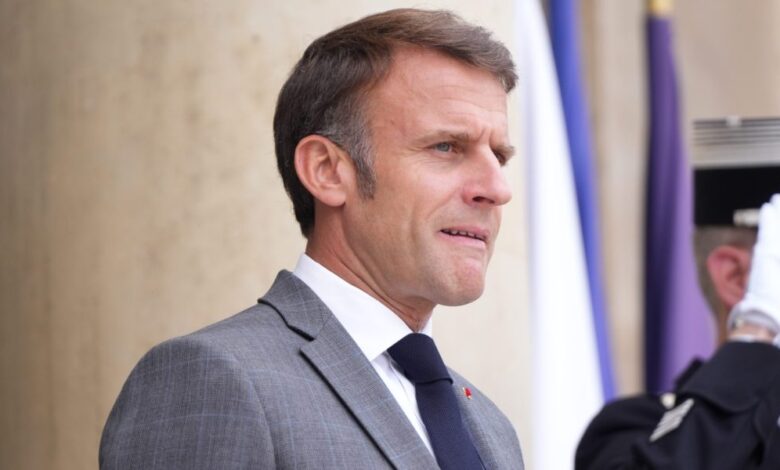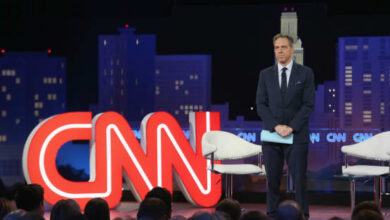France’s political turmoil signals weak government and lower global standing


France is heading for political turmoil after a surprise victory for the left-wing coalition in Sunday’s legislative elections left no party with the majority needed to govern.
New Popular The Front — which includes the Socialist Party and the far-left France Unbowed — is forecast to win between 171 and 205 seats in parliament. Marine Le Pen’s National Rally, which polls last week showed winning the most seats, is expected to come in third, with between 130 and 152 seats, while President Emmanuel Macron’s centrist coalition is forecast to come in second with 152 to 180 seats.
If all three groups fail to reach the 289 seats needed for an absolute majority in the 577-seat House of Representatives, it is unclear how the country, which has no tradition of coalitions, will form a government capable of passing laws.
French Prime Minister Gabriel Attal announced he would submit his resignation to Macron on Monday, a move that would kickstart the process of forming a new government.
The euro fell in early trading as investors digested the results, which were less than expected and raised concerns about France’s finances, as parties pledged to sharply increase public spending.
The Montaigne Institute estimates that the New Popular Front’s campaign pledges will require nearly 179 billion euros ($194 billion) in additional funding each year. The far-right National Rally’s plans would cost about 71 billion euros, while Macron’s party and its allies would need to spend nearly 21 billion euros more.
Le Pen offered a positive take on the results, pointing out that the National Rally, which won 89 seats in the previous legislature, was on track to win the most seats of any party.
“The tide is rising,” Le Pen said. “This time it is not high enough, but it is still rising.”
The surprise result means no coalition has enough numbers to govern with an absolute majority, splitting the legislature into three separate groups with different agendas. Macron will wait for the new configuration of the National Assembly before making any further decisions on naming the next prime minister, according to a statement from an Elysee Palace official.
France will now face two options, with little precedent in the history of the modern republic. Macron could try to forge a coalition of willing but not always like-minded parties, but that would require the New Popular Front to disintegrate and reform behind the president without its more radical elements.
Or Macron could appoint a technocratic administration that could bridge the political chaos. Either option would likely mean a weakened government that would struggle to pass any meaningful legislation and have less influence on the international stage.
“Without a majority and without a government, France and the French people would be in great danger,” Macron’s first prime minister, Edouard Philippe, warned on Sunday night. “The central political forces now have a responsibility they cannot shirk: they must work to reach an agreement that does not lose face, that will stabilize the political situation.”
Jean-Luc Melenchon, the leader of France Unbowed, told supporters on Sunday that his New Popular Front would implement its programme in its entirety and that he would refuse to sign a deal with Macron. But Socialist Party leader Olivier Faure struck a more conciliatory note, saying the party’s task was to “find a way forward” to meet the needs and demands of the French people.
French assets fell sharply in the days after Macron called early elections four weeks ago, but recovered late last week as traders began pricing in Le Pen’s far-right party winning an absolute majority and accepted the prospect of a deadlocked government in which neither the right nor the left have unchecked power.
While Le Pen’s lower-than-expected seat tally and the rise of Macron’s bloc have relieved some traders, the left-wing bloc’s victory could hurt French stocks in the coming weeks.
For Vincent Juvyns, global market strategist at JPMorgan Asset Management, that could show up in the spread between French and German bond yields, which he sees widening.
“The European Commission and the rating agencies are expecting cuts of €20 billion to €30 billion, but the government will actually have to deal with a party that wants to increase spending by €120 billion,” Juvyns said. “This could create tension across markets in the coming weeks. The market could demand a higher premium as long as the new government does not clarify its fiscal position.”
Sunday’s projections give some credence to Macron’s call to dissolve parliament after a crushing defeat to Le Pen’s party last month. He was widely criticised for the decision after his party finished third in the first round of voting last week, in which Le Pen seized the initiative.
The past week has seen frantic efforts to activate the so-called Republican Front—an arrangement in which mainstream parties strategically withdraw candidates from certain races to increase their vote share against the National Rally. Macron’s party has withdrawn 76 candidates from runoffs where it has little chance of winning, to avoid splitting the anti-Le Pen vote. The New Popular Front has withdrawn 130 candidates.
National Party leader Jordan Bardella criticized the strategy, saying the approach orchestrated by the Elysee “will lead nowhere.”
Antonio Barroso, deputy director of research at Teneo, wrote in a note that forming a new government would be complex and could take a long time.
“This indecision poses risks to the country that no one should underestimate,” Philippe said. “Our country’s reputation could be affected, as well as the country’s reputation being damaged.”




